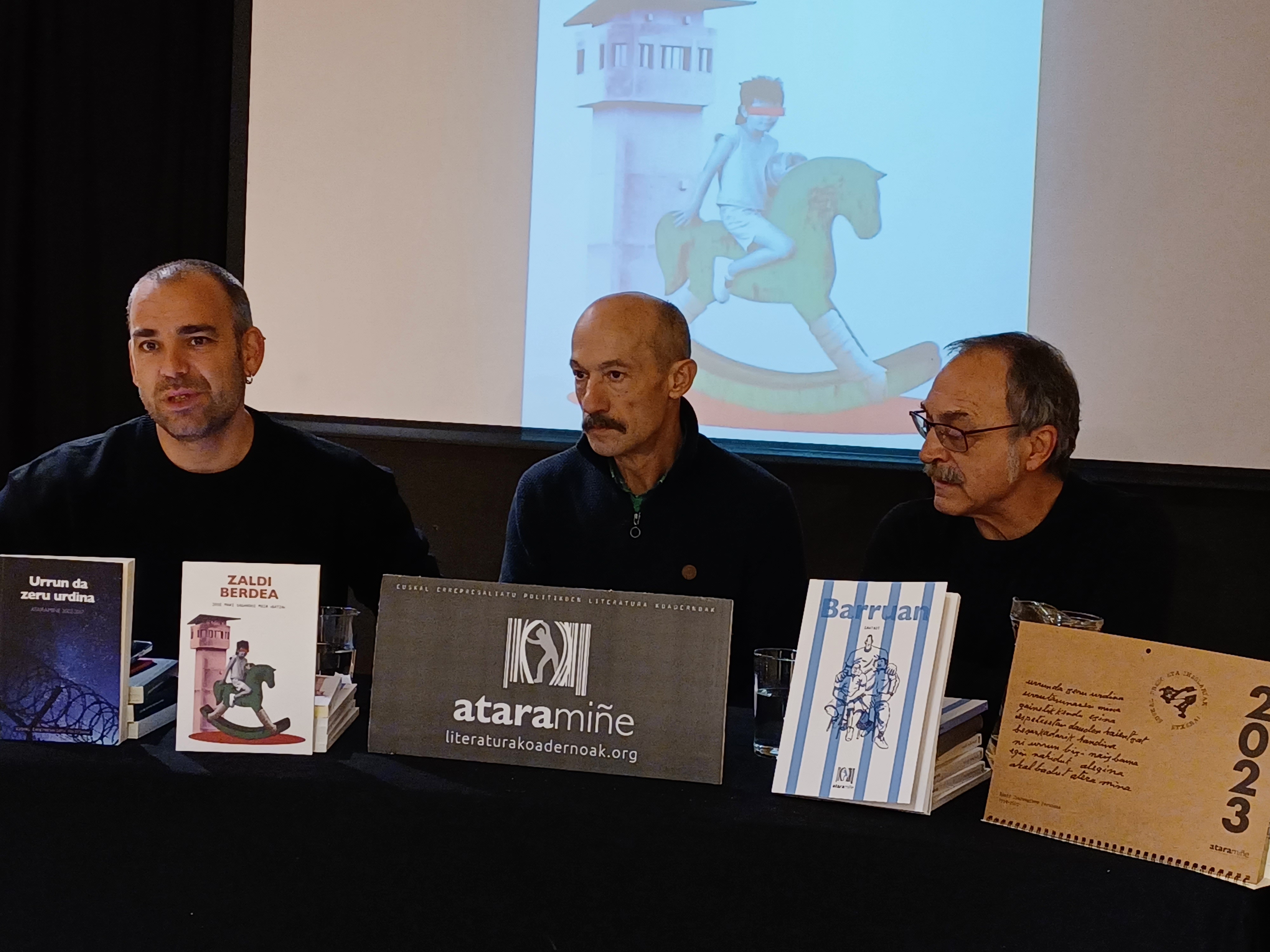
- The editorial Ataramiñe was born in 2002 and has since published writings of Basque political representatives. Until 2017 he published collective works and with some of them he has completed the anthology: The blue sky is far away. Ataramiñe 2002-2017. It is not the only novelty of the editorial, but has just published the novel Barne-komikia and Zaldi Berdea.

The editorial Ataramiñe is a reference in the literature of the Basque prison. This year has reached a quarter of a century with 47 publications written by Basque prisoners, refugees and political deportees. From 2002 to the present, he has flattened the walls of the penitentiary centers through the literature, bringing to the streets the creation that accounts for the reality among bars, a catalog elaborated over the twenty years by novels, essays, comics, poems, bertsos and translations.
The friends of the prisoners and family members are recognized by the editorial members. Without their help, they underline that the path that would be taken would not be possible, as on many occasions thanks to their help, those created by the prisoners in the "smuggling" have gone to the streets. "This is a claim of collectivity in a space where collectivity is punished," according to Oier González of the editorial.
Anthology
On the road of the twenties, the anthology they have just published marks a milestone. The blue sky is far away. Under the title Ataramiñe 2002-2017, Jon Urain Larrañaga has selected a selection of collective works published between 2002 and 2017, and has selected 71 out of 150 works, be they text images, drawings or crafts.
It has used a series of criteria to decide which of the published works are selected. Prioritize works in Basque and prioritize texts related to prison. In addition to completing the collection, Urain has written the prologue. As he explained, "the Basque literature of the prison has a very long trajectory, fortunately for the literature, and unfortunately for those authors", because in Linguae Vasconum Primitae Bernat Etxepare mentions his stay in the prison of 1516.
The members of the editorial are based on a verse by Xanti Iparragirre Perurena (1934-2022) to point to the anthology: The blue sky/ the pain of remoteness/ inability to take it over/ the biggest hug for those in jails/ I live far but/ I want to make the effort/ if I can get the pain.
Other news this year: Green Horse and Interior
In addition to anthology, the editorial has published two new works. The first is a comic book, and the author who uses the pseudonym Gartxot is called Barruan. The protagonist is a man arrested in the 2000s for belonging to ETA, and although it is fiction, the work drinks from reality. It is based on those experienced on the skin by the protagonist himself and other Basque prisoners.
"Jail also has a long shadow on the street." These are words of the author Gartxot, and that is why he has not signed his work by name, as explained by the liver in his conversation: "Unfortunately, the stigma that ex-prisoners face today on many levels has forced me to publish this comic book with the nickname. If it wasn't, I would lose my job, or the child would have problems in school, my partner working..."
The green horse is the other novelty of Ateramiñe, the memory book of Jose Mari Sagardui Moja Sal. Sagarduy was incarcerated in 1980, at the age of 22, and he went out to the street at 52, 31 years later, in 2011. Applying the Parot doctrine, the planned departure date was delayed for two years. The novel narrates what was experienced during a long prison and focuses on his attempted escape from 1993: In Granada (Andalusia) he tried to flee in prison, but when he hung from the roof to go to the wall, he fell to the ground. With his arms and legs broken and lying on the ground, the Civil Guard hit him. "It was March 6, 1993, and that same day, seven years later, his daughter was born: 6 March 2000. And then that day that he became depressed became a handle and a reason to move forward. And that's the meaning of the book," says Xabier Izaga, who helped him with the book.
Joseba Sarrionandia has written the prologue, Izaga the epilogue and Unai Iturriaga has taken care of the image of the cover.